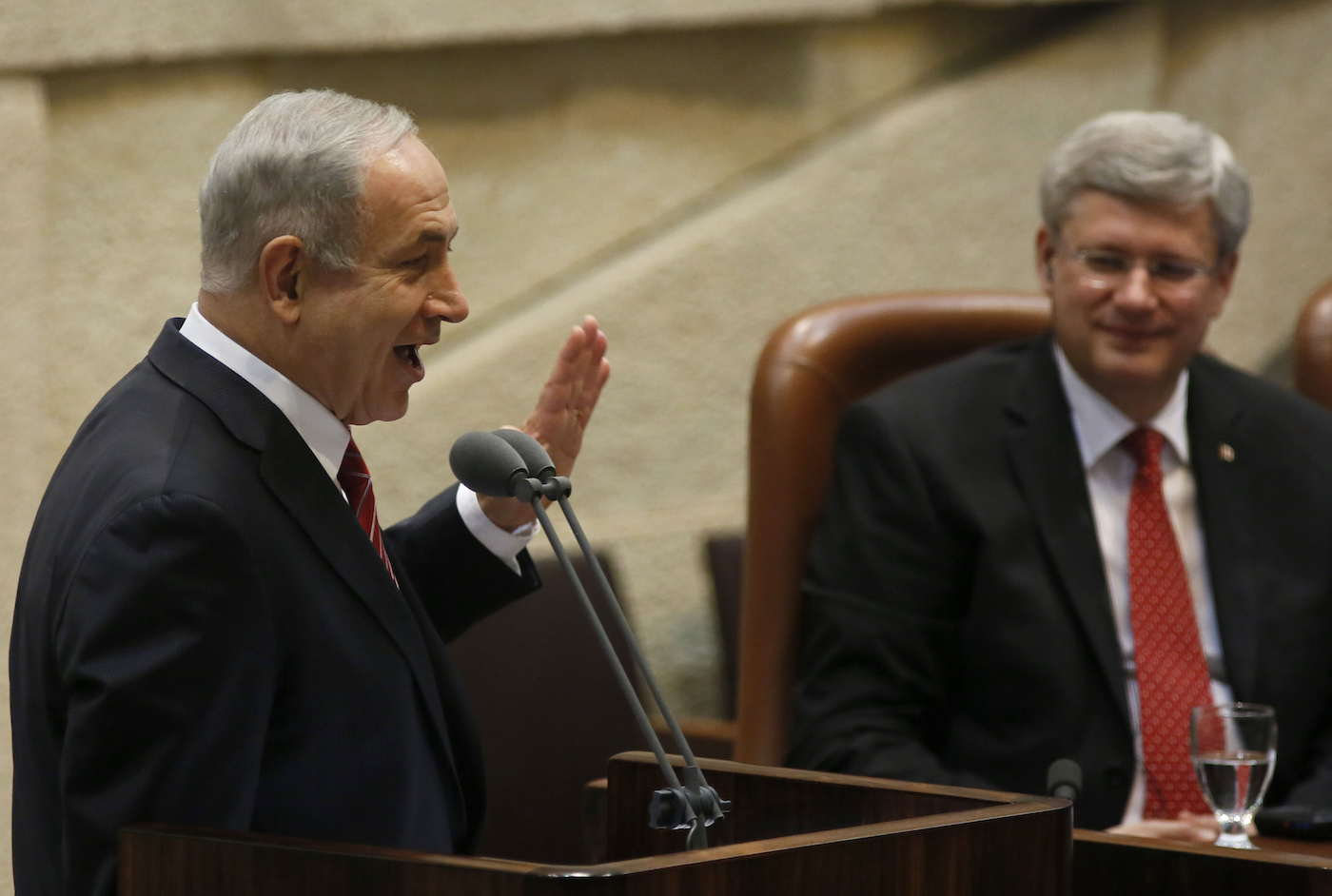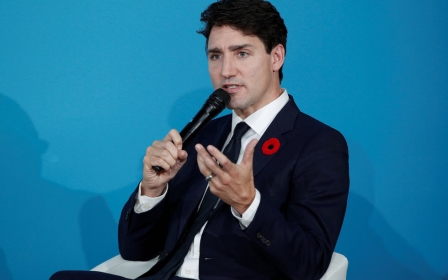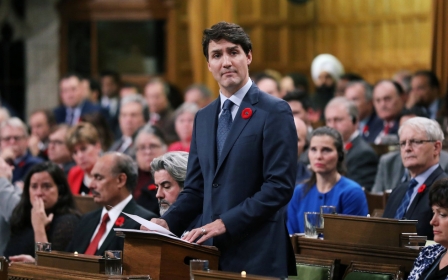Israel's government viewed negatively by many Jewish-Canadians: Survey

Nearly half of Jewish-Canadians say accusations of anti-Semitism are used to silence critics of the Israeli government, according to a newly released survey, which points to divisions within Jewish communities in Canada over Israel's policies.
The opinion poll, released on Tuesday, said that 48 percent of those surveyed agreed that "accusations of anti-Semitism are often used to silence legitimate criticism of Israeli government policies".
The poll is the first to ask Jewish-Canadians about their opinions on Israel and its treatment of Palestinians, according to its co-sponsors, Independent Jewish Voices Canada (IJV) and United Jewish People's Order, two progressive Jewish groups.
The firm EKOS polled a random sample of 359 Jewish-Canadians over age 18, both online and on the phone, between 25 June and 5 September of last year.
More than a third of the Jewish-Canadian respondents - 37 percent - hold negative views of the Israeli government, according to the poll.
New MEE newsletter: Jerusalem Dispatch
Sign up to get the latest insights and analysis on Israel-Palestine, alongside Turkey Unpacked and other MEE newsletters
Diana Ralph, the author of a report accompanying the survey, said in a statement that the results raise questions about Canada's position on the Palestinian-Israeli conflict.
"The survey’s findings indicate once again that the federal government and its major political parties are out of touch with the views of Canadians on these issues, and that, like Canadians generally, many Jewish Canadians do not support Canada's uncritically pro-Israel stance," said Ralph, a founding member of IJV.
For decades, Canada has been a staunch supporter of Israel.
Ottawa's relationship with the Israeli government was bolstered under previous Conservative Prime Minister Stephen Harper, who repeatedly defended a myriad of Israeli policies against international criticism and possible censure, including Israeli settlement expansion in the occupied Palestinian territories.
On a visit to Jerusalem in 2014, Harper became the first Canadian prime minister to address the Israeli parliament, the Knesset. He was welcomed by Israeli Prime Minister Benjamin Netanyahu, who described Harper as "a great friend of Israel and the Jewish people".
That support has largely continued under Justin Trudeau, who has repeatedly lambasted the Boycott, Divestment and Sanctions (BDS) movement for Palestinian rights since taking office in 2015.
In May, Trudeau personally backed Israel's "right to defend itself" amid an uptick in Israeli military attacks on the Gaza Strip - and rocket salvos from the besieged Palestinian territory.
That same month, the Canadian government modernised a decades-old free trade agreement with Israel, saying relations between the two countries were based "on strong economic, cultural and social ties". In 2017, two-way trade between Israel and Canada totalled $1.8b.
Call for boycott 'reasonable'
One in three people surveyed said they opposed the blockade of the Gaza Strip, while 30 percent of respondents also said they believe the Palestinian call for a boycott of Israel is "reasonable".
Mirrored on the successful boycott campaign that helped end apartheid in South Africa in the 1980s, Palestinian civil society groups launched the BDS movement in 2005 in an attempt to hold Israel accountable for its human rights abuses against Palestinians.
Israel's supporters have targeted the movement, saying it amounts to unfair and anti-Semitic criticism of Israel, charges that BDS proponents fiercely reject.
In 2016, the Canadian parliament passed a symbolic motion condemning the BDS movement "given [that] Canada and Israel share a long history of friendship as well as economic and diplomatic relations".
The motion also called on Ottawa to condemn "any and all attempts by Canadian organisations, groups or individuals to promote the BDS movement".
Thirty-four percent of Jewish-Canadians said they oppose parliament's condemnation of those who endorse a boycott of Israel, the survey found.
Meanwhile, while 45 percent of people surveyed said they opposed the United States' decision to recognise Jerusalem as the capital of Israel, an almost equal number, 42 percent, said they supported the contentious move.
In August, Canada's Conservative Party followed in Donald Trump's footsteps, passing a resolution to recognise Jerusalem as the Israeli capital. The party has also pledged to move the Canadian embassy to Jerusalem should it win the federal election later this year.
Fighting 'true anti-Semitism'
Rachel Epstein, executive director of the United Jewish People’s Order, said she was "heartened" by the fact that Jewish-Canadians have not fallen "prey to the idea that valid criticisms of Israel are anti-Semitic".
"This unethical manipulation belittles true anti-Semitism, which, as we recently witnessed in Pittsburgh, is on the rise," she said in a statement commenting on the survey's findings.
Epstein was referring to the attack on a synagogue in Pittsburgh in late October that left 11 congregants dead.
That is believed to be the deadliest anti-Semitic attack in United States history and comes amid a reported increase in violence and racist rhetoric targeting Jewish people in North America.
In Canada, anti-Jewish hate crimes reported to police were on the rise in 2017, going from 221 in 2016 to 360 that year - a 39 percent increase.
Hate crimes targeting Jewish people in Canada accounted for 18 percent of all hate crimes recorded in 2017, the most recent year for which the data is available from Statistics Canada.
Middle East Eye delivers independent and unrivalled coverage and analysis of the Middle East, North Africa and beyond. To learn more about republishing this content and the associated fees, please fill out this form. More about MEE can be found here.





